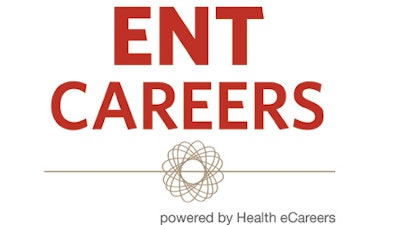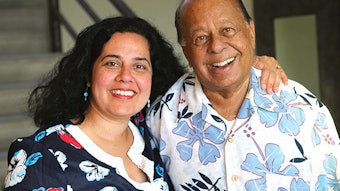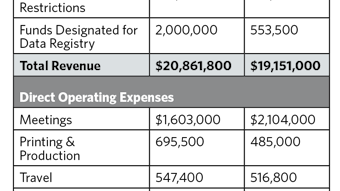ACADEMY ADVANTAGE PARTNER: ENTCAREERS Think like a hiring managerExpanded from the print edition
It happens to everyone—even the best medical professionals in the industry—at least once. An internet search leads you to a clinic, hospital, or health system job posting that seems like a perfect fit. You dust off your résumé and cover letter, submit them according to the instructions … but nothing happens.

Chances are your rejection had little to do with any of these points. Rather, you may have failed to consider your candidacy from the employer’s perspective.
Whether you’re a pediatric ENT who dreams of working for a major hospital system or a local ENT physician who aspires to join the team at a local clinic, implementing these suggestions will help you get a healthcare job by thinking like a hiring manager.
Ensure your skills meet the healthcare organization’s needs.
The reality is that few healthcare employers are really interested in your college GPA, every organization you’ve worked for over the last decade, or your expertise in anything that doesn’t directly relate to the job at hand. What they do want to know is whether you can meet their specific set of needs. Clutter your résumé with skills and accomplishments outside of those margins and you’re only making it harder for them to recognize your suitability.
How can you make sure your application materials are presenting you as a good fit? Compare them to the job description and adjust accordingly. Eliminate any irrelevant information. Prominently feature the experiences that best align with your potential employer’s list of requirements. For example, Jackson Health System recently posted an opening for a clinical lab manager. The position requires exercise of independent judgment in addition to clinical and supervisory experience. Your résumé should focus on these points and avoid wasting space on unrelated experience you may have acquired in previous jobs outside the healthcare industry.
Make communication with the hiring manager a priority.
Hiring a new employee—in any industry—is a time-consuming and expensive process. Whether the hiring manager is replacing a retired emergency medicine nurse practitioner or adding database administrators to meet growing demand, it’s likely the staff shortage is reducing the organization’s productivity. Do whatever you can to make hiring you for the job an easy decision—from submitting a clear and concise résumé to returning phone calls and emails promptly.
While you’re at it, take care with any written responses to requests for information. Sure, you may be responding to an email about an interview for a dietician job on your mobile phone while enjoying a meal out with friends, but proper grammar and punctuation are still necessary—and the hiring manager may hold any blunders against you.
Don’t forget the soft skills.
While technical skills are certainly essential—such as storing images correctly and accurately on PACs systems if you’re a diagnostic medical sonographe—hiring managers are also interested in your soft skills. These are less tangible traits often associated with personality. One recent survey found that the five most popular soft skills employers look for are strong work ethic, dependability, positive attitude, self-motivated, and team-oriented. Experts recommend including these skills within accomplishments on your résumé. For example, if you’re a diagnostic medical sonographer applying for a job, you might include a statement such as “helped to create positive patient experiences that embody the hospital’s values” rather than just “has a positive attitude.”
Visit ENT Careers for jobs, career advice, and more!


















